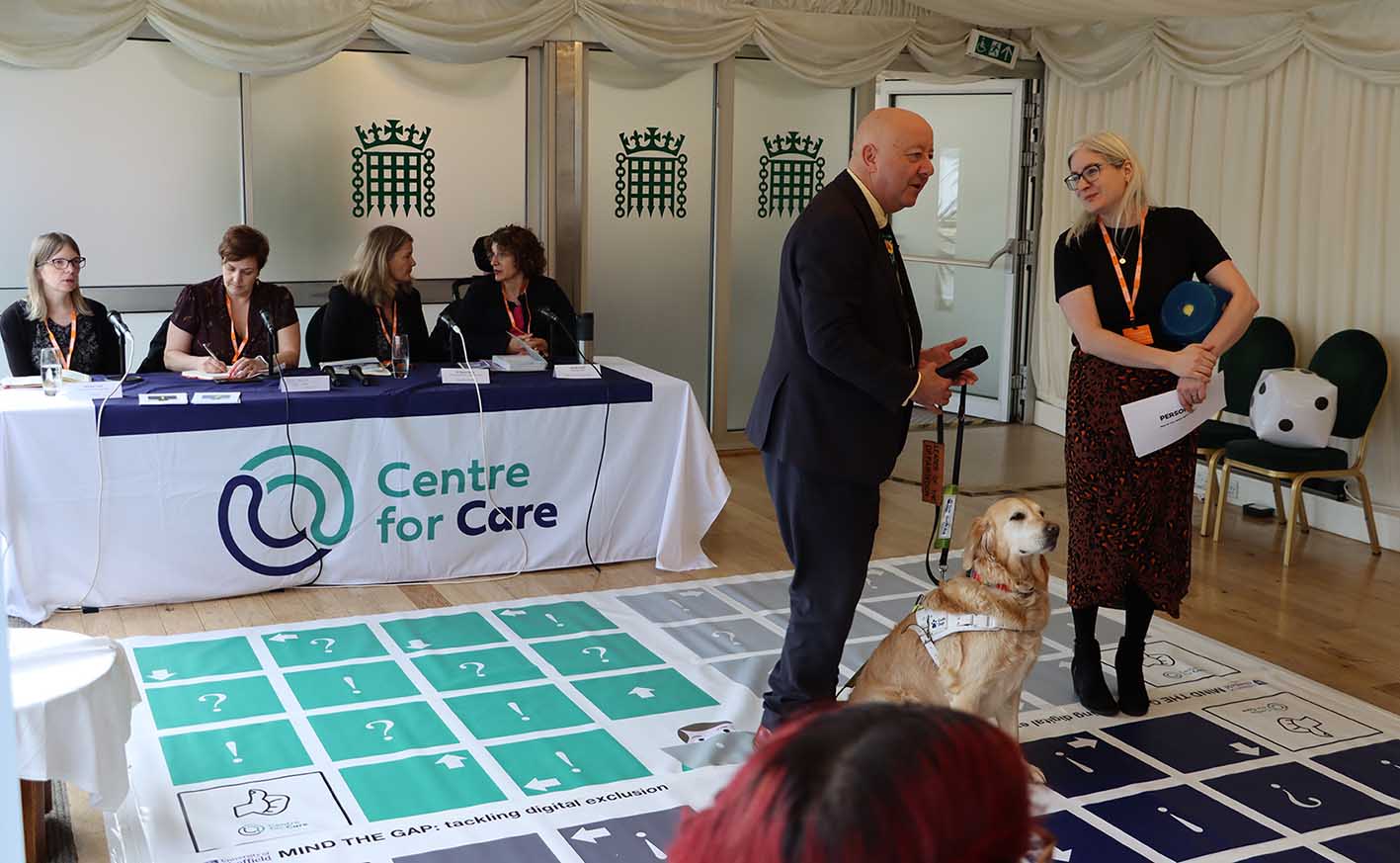A year ago at the Economic and Social Research Council’s Festival of Social Sciences 2024, the Centre for Care launched the first edition of ‘Mind the Gap’ – a board game designed to raise awareness about the digital barriers faced by people living in our society when using online services. Fast forward one year to November 2025-we celebrated the game’s one year anniversary at the House of Commons!
How it started
In the summer of 2024, I had an idea for a human-sized board game, which would bring to life some University of Sheffield research on digital exclusion and inclusion, in an accessible and easy to understand way. Unfortunately I had zero experience in creating a board game but, thanks to expert colleagues, I had plenty of research findings and recommendations to work with.
There are many people in our region who are digitally excluded. Research by colleagues in the University of Sheffield’s Information School shows that issues around connectivity, income, age and ability, discrimination, confusing information, lack of support and people’s own online confidence and motivation to access the internet all contribute to digital divides in our society. In the Centre for Care, research in our Digital Care and Innovation theme has discovered that unpaid carers face significant barriers to being digitally included, such as the affordability of devices, concerns about online safety, and security and confidence.
So, how do you create a board game? When I started asking questions around the university, I was put in touch with local award-winning artist, Paul Evans, who lives in Sheffield and also had the intriguing idea to create a giant board game – and importantly, had already been successful! Paul and I spent a few hours together discussing how to distil academic research into a playable game, and Paul went away to design a first version. After a few tweaks, we were getting to grips with how the game would look and how it would be played.
A key part of the game is the inclusion of 16 personas, based on the demographics of people who live in real areas in South Yorkshire. The personas have attributes that a typical person living in these areas would have, based on information from the Digital Poverty Heatmap developed by Efpraxia Zamani and Sara Vannini, ensuring the game is based on research findings throughout. The personas and barriers faced by them in the game also incorporate information from the ‘Digital inclusion network development: a case study in Derbyshire’ research by Sharon Wagg et al, research by Laura Sbaffi, and case studies from the Centre for Care’s Kate Hamblin, Grace Whitfield and Rachael Black. The barriers represent real challenges felt by real people.
With the game play almost finalised, I met with Think Local Act Personal’s National Co-Production Advisory Group to discuss the subject matter and to ensure we were including the right barriers to digital inclusion in the game. Thanks to this group we were able to finalise a comprehensive list of barriers to further bring the game to life.
My excellent colleagues at the Centre for Care also served as guinea pigs for ensuring the game worked and was enjoyable, and after a test run at our internal conference in October 2024, Paul and I made a few final tweaks before we launched ‘Mind the Gap: Tackling Digital Exclusion’ at the Festival of Social Sciences’ Research Arcade at the Millennium Galleries in Sheffield!
At the launch event, Professor Kate Hamblin hosted the game in front of an audience made up of the general public, stakeholders, and local organisations such as the Good Things Foundation, who focus on improving digital inclusion in the UK. We invited an expert panel to discuss the barriers faced during the game play, which provided meaningful context and also some local solutions to the issues faced. I also took part in a radio interview for BBC Sheffield at the event which was broadcast the following day!
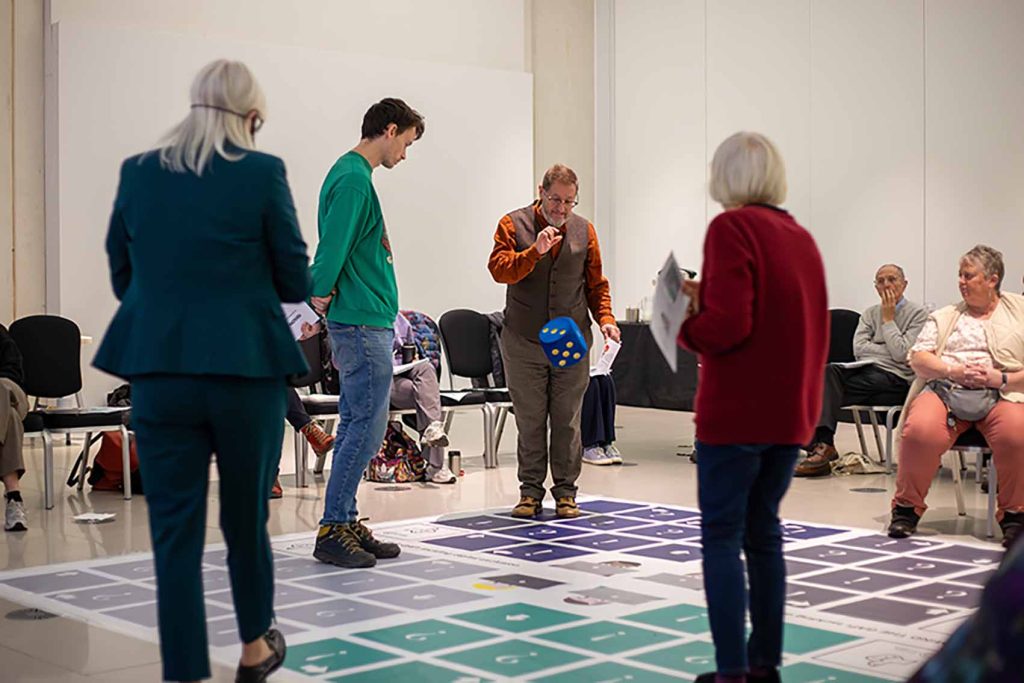
How it’s going
Since the success of the launch event, the game has been on tour to other places in the UK. We now have two other versions of Mind the Gap – one developed by Fay Benskin (Centre for Care) and Carers UK focuses on the barriers faced by unpaid carers, and another developed by Dr. Ryan Bramley, Dr. Jennifer Roswell and Dr. Angela Colvert, focuses on digital barriers felt by young carers, which was launched at the Festival of Social Sciences this year (2025).
During Carers Week 2025 in June, we were delighted to present Mind the Gap: Tackling Inequalities for Unpaid Carers at Greenwich Carers Centre, where we were joined by the leader of the Liberal Democrat Party, Sir Ed Davey and fellow MP Alison Bennett, who both played our game in front of an enthusiastic audience of unpaid carers.
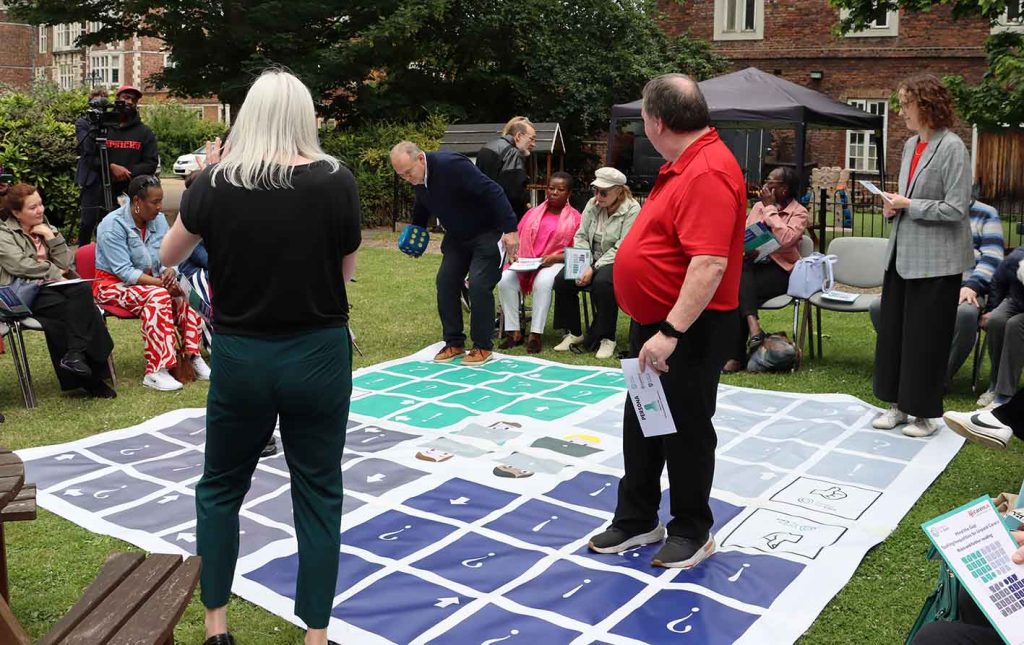
The game has also been used in teaching modules in the University of Sheffield, served as a stimulus for engaging debate on digital exclusion and accessibility, and provided a safe space for people affected by the issues to convey their own thoughts and wishes for a more digitally inclusive society.
Happy 1st Birthday, Mind the Gap
On 5th November 2025 we were honoured to present Mind the Gap: Tackling Digital Exclusion in Parliament, having been invited by Steve Darling MP. We held the event in the Terrace Pavillion in the House of Commons and were joined by 15 MPs and an audience of stakeholders from various organisations, all exploring digital exclusion. The setting was beautiful, the event was engaging and we made strong new connections with parliamentarians.
We were supported at the event by Age UK (whose team members also joined our expert panel), the Good Things Foundation, and one of Sheffield’s finest outputs- Henderson’s Relish (a condiment that is definitely not Worcestershire sauce), who provided tiny bottles of the good stuff for us to hand out to attendees. We would like to say a huge thank you for all this support!
Also, a massive round of applause for my colleague Fay Benskin, who works tirelessly to make events like this one a success, and Kate Hamblin, who has expertly guided players through the game and facilitated the panel and audience contributions
This was a very proud moment for me- seeing an idea for one event become popular enough to do all things it has done this year, and then be invited to Parliament where it was played by those who can make a real difference to people’s lives, meant I was beaming all the way back to Sheffield.
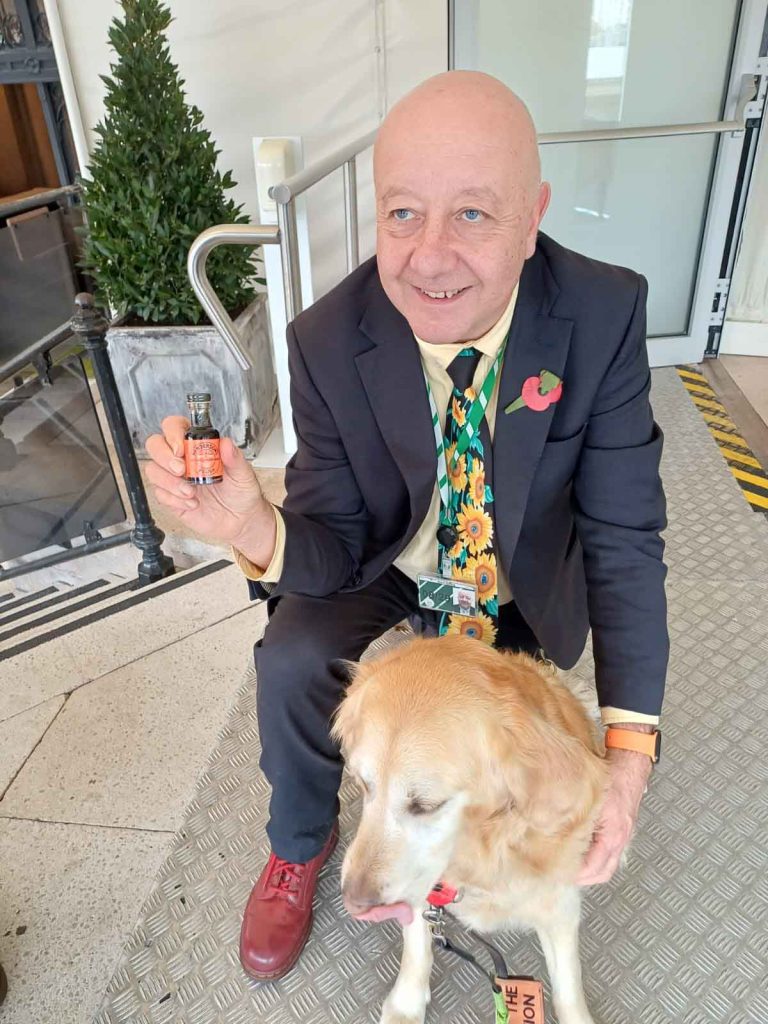


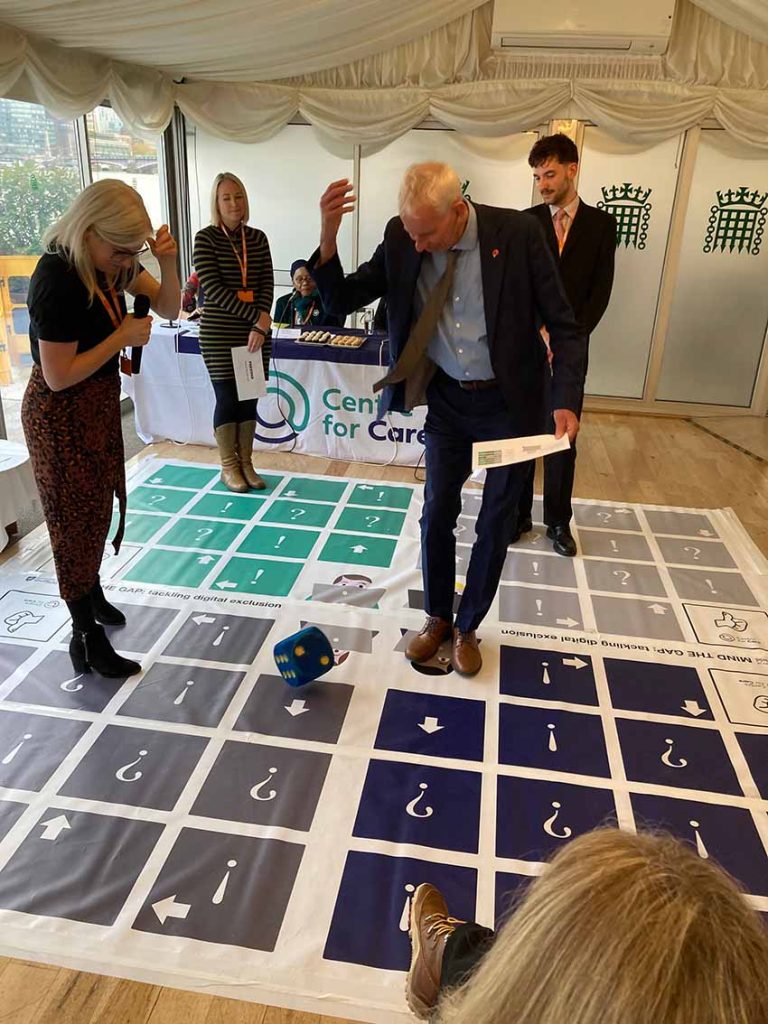
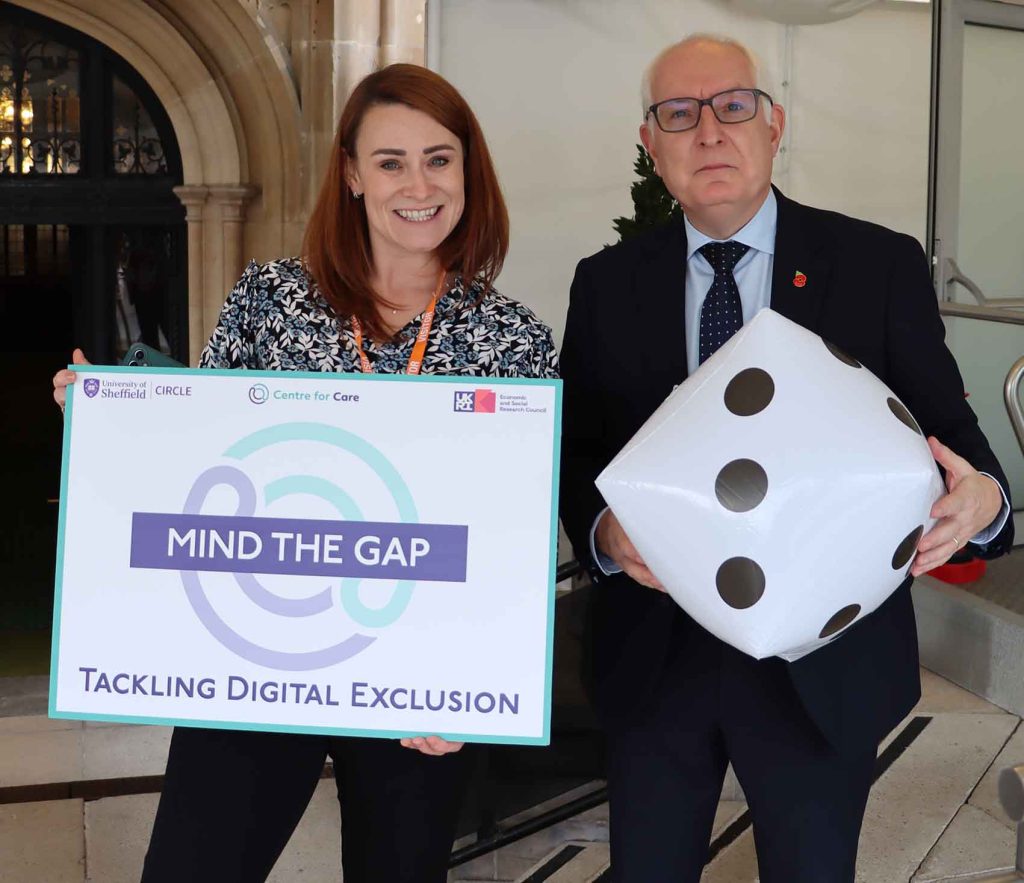
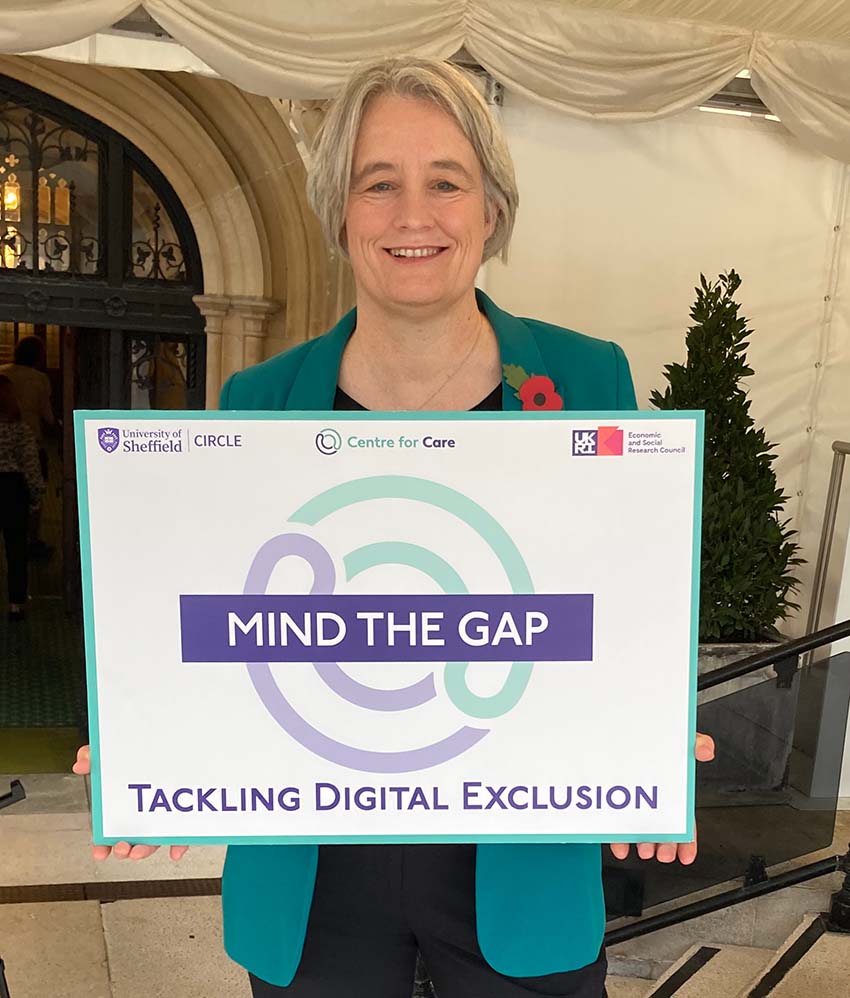
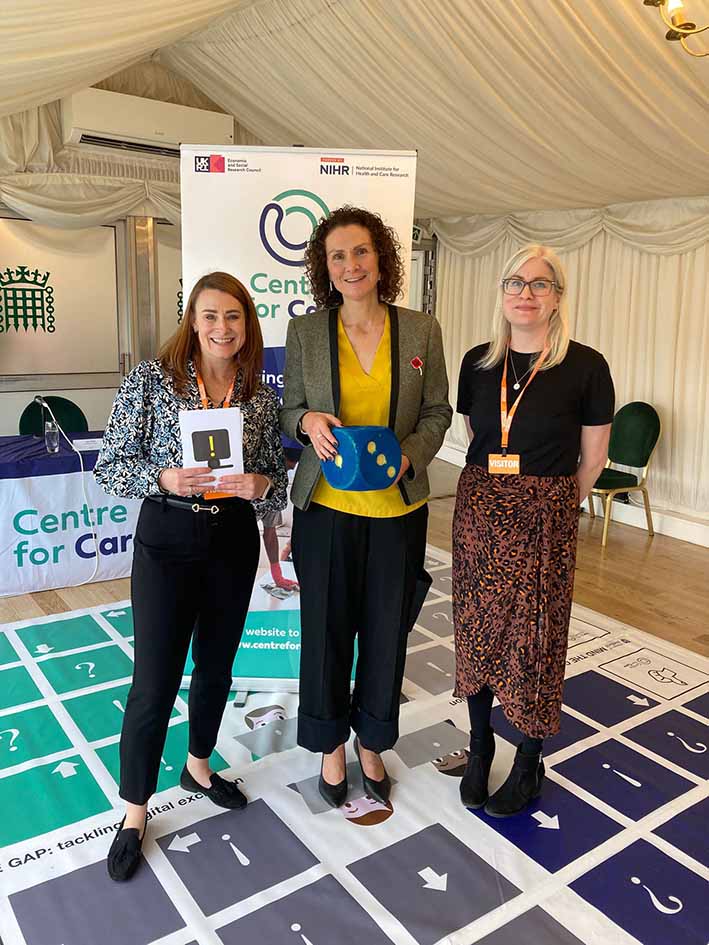
We will continue to engage with MPs, civil servants, other stakeholders and unpaid carers to attempt to create a positive difference to those in our society struggling in this ever more digital world.
What next?
We’re always looking at new ways the game can be used to make a difference, and perhaps further versions of the game which focus on other groups in society will emerge. A year ago I never would have guessed how successful this idea would become, so looking ahead another year really makes me think ‘wow, I have no idea where this will go!’
If you’d like to learn more about the game, click here; and if you’d like to discuss using the game with us please get in touch!
